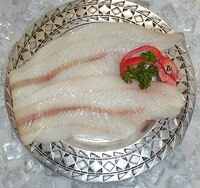Where is Monaco? A lot of you definitely will be wondering about that because I believe most of you do not know where Monaco is. Monaco is actually the second smallest country in the world after Vatican City. It has the area of approximately 2.02 square kilometers and has the population of 36371. The current ruler of Monaco is His Serene Highness Prince Albert II. Monaco is extremely famous for its tax haven.

The picture above shows a part of the geography of Monaco.
So, what are the culture of Monaco? First I will talk about the people in Monaco. Monaco has a Mediterranean, Roman Catholic culture emphasizing the family. Until the second half of the 20th century, women only play a role in family and household. Women are not deeply involve in politics until the 1960s when they first received the vote. Even though there are still very little women who work outside of the home, Monegasque women also known as Monaco's women, still work in a variety of field and are active in politics.
In terms of marriage, Monaco people take it as a very important family event and the divorce rate is very low. In Monaco, it is very popular to have church wedding which held according to Roman Catholic traditions. Besides, during marriage, they need to have a civil ceremony which held at the city, even when a religious ceremony is organized. Certain couples chooses only to have the civil ceremony.
The domestic unit of Monaco consists of immediate and also extended family members such as grandparents and other elderly relatives. Monaco is able to maintain a stable average domestic unit due to the low divorce rate and general affluence in Monaco. Monegasque social activities frequently revolve around family events and gatherings. Grandparents often help to take care of their grandchildren when both parents work.
In terms of religion, majority of the people of Monaco are Roman Catholic even though freedom of worship is guaranteed by Article 23 of the Constitution. The church is very important for the Monegasque as it play a very important role in their traditions especially on feast day and special holidays. Church attendance is not as many as olden days and it is hard to determine the exact number of people who are practicing Catholics. Monegasque beliefs about death and afterlife by according to the teachings of Roman Catholic Church.
Most of the foods in Monaco have the influence of both French and Italian. Most of the feature dishes in Monaco are seafood due to the geography location of Monaco which near to the sea. Which then enable Monaco people to enjoy fresh and local produce seafood everyday. Normally, Monegasque eat very little during breakfast but during lunch and dinner they normally eat several courses. Fishes play an important role in the diet of the Monaco people as restaurants in Monaco have fishes as their most important dishes.
Example of special food in Monaco:

Barbagiuan:
Sweet pastry filled with rice, leeks, cheese, and either pumpkin or spinach.

Fougasse:
A sweet pastry made from orange-infused pastry and topped with anise seeds and nuts.

Socca:
Pancakes made with chickpea flour.

Stocafi:
Dried cod cooked in tomato sauce.
Brandamincium:
Salt cod pounded with garlic, cream, and oil surrounded by cardoons, edible Mediterranean plants, in white sauce.
Barbagiuan, fougasse and brandamincum are traditional Monegasque dishes which eat mostly during holidays such as Christmas, Holy Week before Easter, and Carnival before Lent.
There are many cultural events and festivals on Monaco. Some of it are:
- The Feast of Sainte Dévote - Fête de la Sainte Dévote ( 27 January ):
A feast day dedicated to the patron saint of Monaco, Dévote. This feast includes a religious ceremony, blessing and torchlight procession. A boat is set alight at the end of the feast. - Eve of St John's Day and St John’s Day - Fête de Saint-Jean-Baptiste ( 23 & 24 June ):
It were a 2 days dedicated to Saint John the Baptist. The whole celebration include religious services, a procession, bonfire, music and culminates in a ball on the Place des Moulins. - Feast of St Roman - Fête de Saint Roman ( 9 August ):
A day dedicated to honour Saint Roman which is the Monaco’s second-most revered saint. The feast ends with a dance in the Jardin Saint Martin. - National Day of Monaco - Fête National de Monaco ( 19 November ):
A day to celebrate the national day of Monaco which includes processions and ceremonies. It ends with a grand ball hosted by His Serene Highness Prince Albert II. - Monaco Formula 1 Grand Prix - Grand Prix de Monaco ( May's last weekend ):
One of the most famous cultural events which attracts thousands of spectators. All of the world best Formula 1 drivers will compete with each other. It was organised by the Automobile Club of Monaco.
Conclusively, Monaco is a very interesting country. I learned a lot during this blog writing assignment. I learned about the Monaco's people, marriage, families, religion, foods and festivals. I hope that someday, I will be able to travel to Monaco as it will definitely turn out to be a very nice trip. Thank you for reading my blog.
Prepared by:
Avery Choke Kar Sing
References:

No comments:
Post a Comment